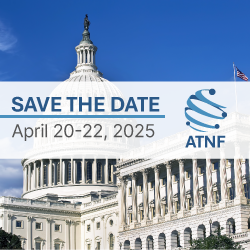Dr. Tikki Pang, a professor and former Director of Research Policy and Cooperation at the World Health Organization (WHO), delivered a compelling keynote at the Global Tobacco and Nicotine Forum (GTNF) in Brussels, urging the global public health community to “find a detour” around entrenched opposition to tobacco harm reduction (THR). Drawing a vivid analogy, Pang said the WHO’s position acts like a “landslide blocking the road” to progress, creating ripple effects that influence policy, weaken public trust, and stigmatize innovation. Attempts to change this stance, he said, have proven “frustrating and futile.”
“‘Tobacco control’ has become the complete elimination of tobacco in society,” Pang said. “It’s become pretty much ideological at this point. It has become evidence-selective, perhaps evidence-blind.
“We need to overcome this perception that the industry is the cause of the problem and not part of the solution.’
Pang described the journey toward a THR-friendly world as “a long road with many obstacles,” and warned that the EU’s recent alignment with anti-THR policies could have “global repercussions.” Instead, he called for a “circuit breaker” — independent, multi-stakeholder platforms that operate outside the WHO’s Conference of the Parties (COP) framework. These coalitions should unite industry, consumers, investors, media, and advocates to advance harm reduction directly, he said.
Pang emphasized the crucial role of media and advocacy in countering misinformation, noting that journalists can either “spread misconceptions or become powerful allies.” He also suggested situating THR within the broader context of non-communicable disease (NCD) prevention.
Reflecting on his 13 years at the WHO, Pang acknowledged its achievements in supporting underserved populations but said the organization now faces “a crisis of relevance and confidence.” He concluded that while the WHO’s mission explicitly includes improving global health — including for smokers seeking better alternatives — progress will depend on using science-driven innovation and rational policy to achieve that goal.
“Science has given us the tools to reduce harm from tobacco,” Pang said. “Reason dictates that we should use them.”





